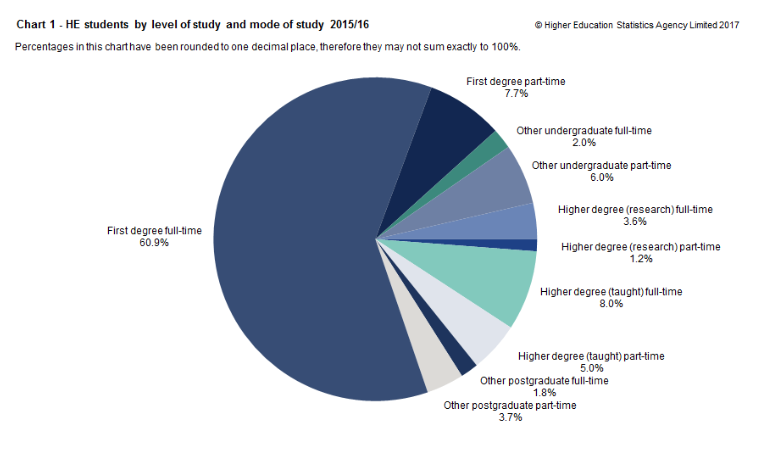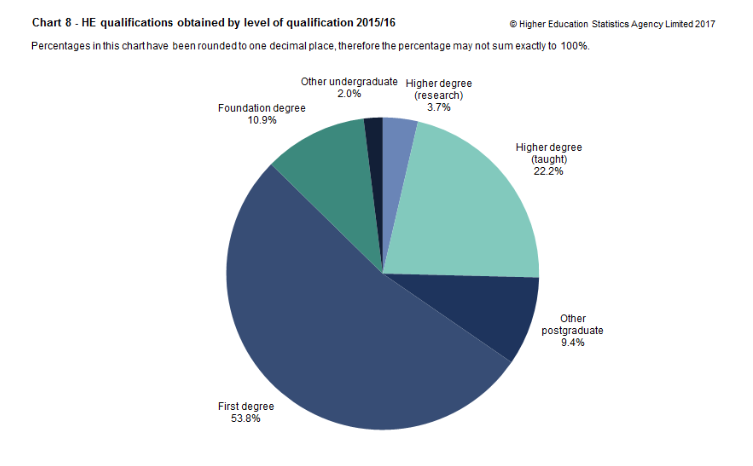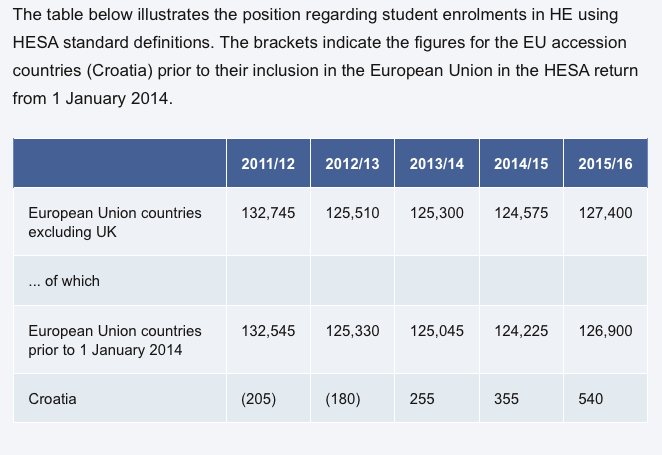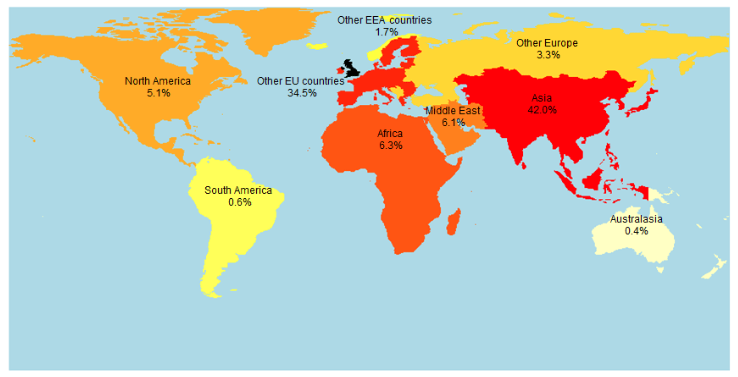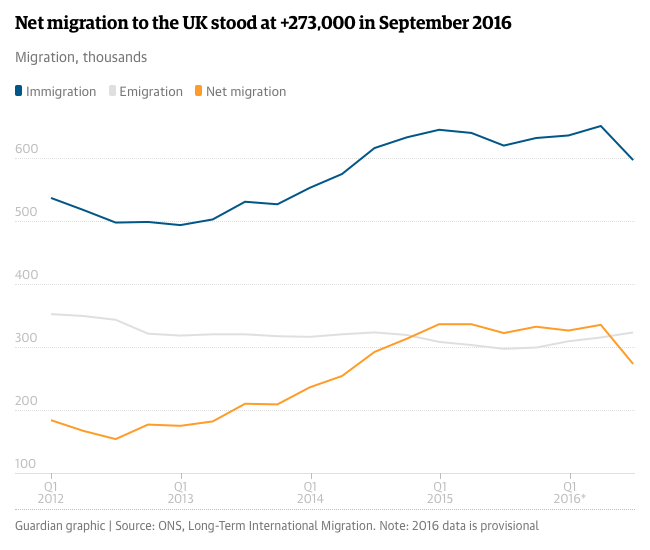 This month, the UK’s Higher Education Statistics Agency (HESA) released a publication on the detailed analysis of the student dataset for 2015/16.
This month, the UK’s Higher Education Statistics Agency (HESA) released a publication on the detailed analysis of the student dataset for 2015/16.
The dataset, Students in Higher Education 2015/16, provides us with rich information about students’ ‘subject of study, level of study, mode of study, age, sex, ethnicity, disability, domicile’ and other social demographics which help understand the state of UK HE.
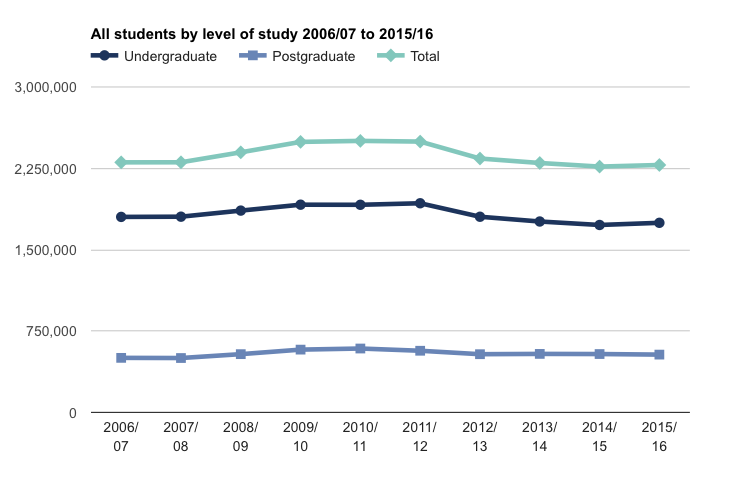
The data shows that approximately ‘2.3 million students were studying for a qualification or for credit at 162 HE providers in 2015/16’ which reveals an 0.7% increase from the previous year. More specifically:
Postgraduate enrolments decreased by 1.0% and undergraduate enrolments increased by 1.2% between 2014/15 and 2015/16. Full-time enrolments increased by 2.6% while part-time enrolments showed a decline of 5.0% over the same period.
More importantly, the data provide details on whether UK higher education is at risk of a further decline in overseas students and staff, particularly as Brexit takes shape.
HESA states:
‘Although a large proportion of students studying in the UK were domiciled in the UK before they entered higher education (80.8%), 5.6% were from other countries within the European Union (EU) and 13.6% were from countries outside the EU. These proportions varied by level of study.
‘Over a third (37.5%) of postgraduate students were from outside the UK compared to only 13.6% of undergraduates. Other EU postgraduate students comprised of 8.5%, while undergraduates consisted of 4.7% and the corresponding figures from non-EU countries were 29.0% for postgraduate students and 8.9% for undergraduate students.
‘Over half (57.1%) of all full-time postgraduate students were from outside the UK, with 45.5% of full-time postgraduates coming from outside the EU. Non-UK domiciled postgraduate students were prominent on full-time research higher degree courses (50.9%) and even more so on full-time taught higher degree courses (69.8%).
‘Among undergraduate students from outside the UK, the highest proportions came from Asia (42.0%) and the EU (34.5%). The next highest proportions were from Africa (6.3%), the Middle East (6.1%) and North America (5.1%).’
Recent news has highlighted the potential threat of a brain drain in the UK, potentially sparked by the ‘highlight publicised spike in hate crime‘.
The Guardian reports that the ‘latest quarterly migration figures from the Office for National Statistics show that immigration fell by 23,000’ and that ‘a key component in the unexpected fall was an estimated 41,000 drop in the number of international students coming to study in Britain, to 134,000, the lowest level since 2002’.
Of course policy plays a significant role in ensuring UK universities remain attractive enough to enable successful recruitment and retainment of global talent, however the publicity and stories that are heard through informal channels paint a different picture. A YouGov poll published in January this year shows that 39% of those surveyed say racism and discrimination has occurred as a direct result of the leave vote. Equally, the poll revealed that 66% believe they have evidence of academics considering leaving the UK to pursue a career elsewhere because of Brexit.
With the global HE landscape developing quickly and offering viable competitive options to many academics, it is important the UK recognises that the risk of losing its strong position as a global talent hot spot is possible.
hana morel #hanamorel
